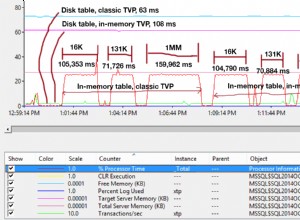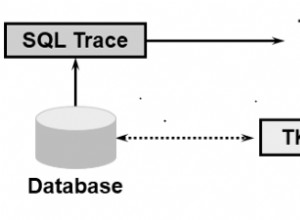मैंने इसे अपने एमएस एक्सचेंज सर्वर के माध्यम से सिरिलिक ई-मेल भेजने के लिए कार्यान्वित किया है।
function to_base64(t in varchar2) return varchar2 is
begin
return utl_raw.cast_to_varchar2(utl_encode.base64_encode(utl_raw.cast_to_raw(t)));
end to_base64;
कोशिश करो।
अपडेट करें: एक छोटे से समायोजन के बाद मैं इसके साथ आया, इसलिए यह अब दोनों तरह से काम करता है:
function from_base64(t in varchar2) return varchar2 is
begin
return utl_raw.cast_to_varchar2(utl_encode.base64_decode(utl_raw.cast_to_raw(t)));
end from_base64;
आप इसे देख सकते हैं:
SQL> set serveroutput on
SQL>
SQL> declare
2 function to_base64(t in varchar2) return varchar2 is
3 begin
4 return utl_raw.cast_to_varchar2(utl_encode.base64_encode(utl_raw.cast_to_raw(t)));
5 end to_base64;
6
7 function from_base64(t in varchar2) return varchar2 is
8 begin
9 return utl_raw.cast_to_varchar2(utl_encode.base64_decode(utl_raw.cast_to_raw (t)));
10 end from_base64;
11
12 begin
13 dbms_output.put_line(from_base64(to_base64('asdf')));
14 end;
15 /
asdf
PL/SQL procedure successfully completed
upd2: ठीक है, यहां एक नमूना रूपांतरण है जो CLOB के लिए काम करता है मैं अभी साथ आया हूँ। इसे अपने ब्लब्स के लिए काम करने का प्रयास करें। :)
declare
clobOriginal clob;
clobInBase64 clob;
substring varchar2(2000);
n pls_integer := 0;
substring_length pls_integer := 2000;
function to_base64(t in varchar2) return varchar2 is
begin
return utl_raw.cast_to_varchar2(utl_encode.base64_encode(utl_raw.cast_to_raw(t)));
end to_base64;
function from_base64(t in varchar2) return varchar2 is
begin
return utl_raw.cast_to_varchar2(utl_encode.base64_decode(utl_raw.cast_to_raw(t)));
end from_base64;
begin
select clobField into clobOriginal from clobTable where id = 1;
while true loop
/*we substract pieces of substring_length*/
substring := dbms_lob.substr(clobOriginal,
least(substring_length, substring_length * n + 1 - length(clobOriginal)),
substring_length * n + 1);
/*if no substring is found - then we've reached the end of blob*/
if substring is null then
exit;
end if;
/*convert them to base64 encoding and stack it in new clob vadriable*/
clobInBase64 := clobInBase64 || to_base64(substring);
n := n + 1;
end loop;
n := 0;
clobOriginal := null;
/*then we do the very same thing backwards - decode base64*/
while true loop
substring := dbms_lob.substr(clobInBase64,
least(substring_length, substring_length * n + 1 - length(clobInBase64)),
substring_length * n + 1);
if substring is null then
exit;
end if;
clobOriginal := clobOriginal || from_base64(substring);
n := n + 1;
end loop;
/*and insert the data in our sample table - to ensure it's the same*/
insert into clobTable (id, anotherClobField) values (1, clobOriginal);
end;




